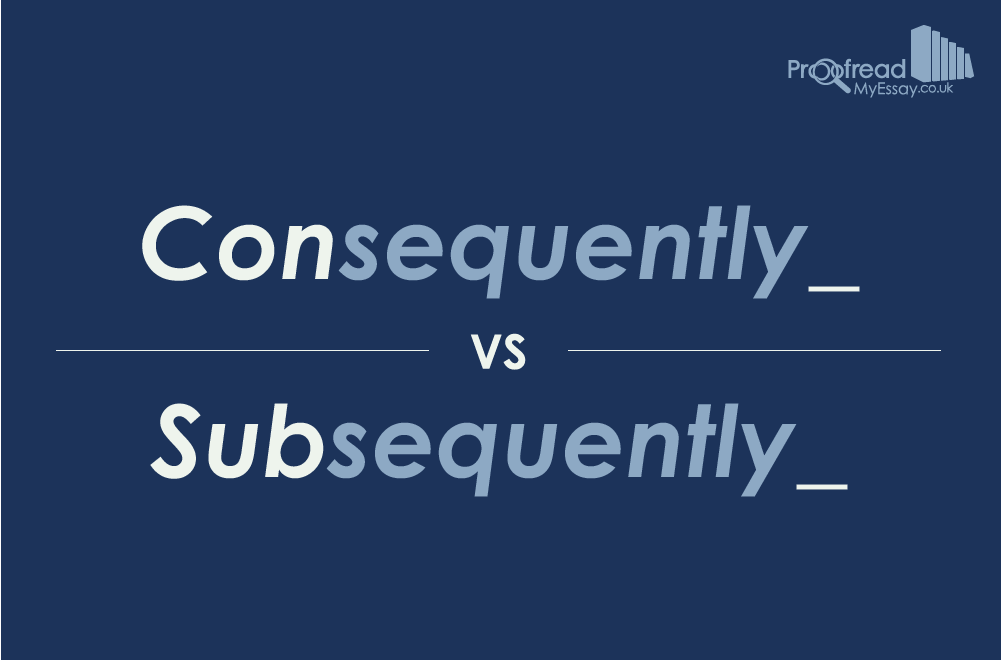The terms ‘consequently’ and ‘subsequently’ are often confused, primarily because they both end in ‘-sequently’, but also due to sharing a sense of something ‘occurring later’.
Nevertheless, these words have very distinct uses, so you’ll want to avoid unnecessary mix-ups in your academic writing or at work. Herein, we run through how and when they should be used.
Consequently (As a Result)
The definition of ‘consequently’ is ‘as a result’ or ‘therefore’. Consequently, we use it as an adverb when referring to the results of something. Such as in the previous sentence.
To illustrate this more clearly, we’ll use a (slightly) less self-referential example:
You confused important terms in your essay and consequently lost marks.
In this case, using ‘consequently’ indicates the connection between a cause (confusing terms in an essay) and an effect (losing out on marks). This connection is also reflected in the noun ‘consequence’, meaning ‘result’.
Subsequently (Later)
‘Subsequently’ is an adjective meaning ‘occurring later on’ or ‘in succession’. Rather than describing a relationship of cause and effect, ‘subsequently’ indicates that something happened after something else:
Paul graduated with a first class degree; subsequently, he became King of the World.
‘Subsequently’ here simply means Paul became King of the World at some point after graduating, whereas ‘consequently’ would imply he achieved this because of his degree.
Find this useful?
Subscribe to our newsletter and get writing tips from our editors straight to your inbox.
The important difference is that something being ‘subsequent’ to something else doesn’t imply any relationship of cause and effect. As such, the sentence still makes sense when we replace ‘became King of the World’ with ‘had a sandwich’:
Paul graduated with a first class degree; subsequently, he had a sandwich.
It would be quite unusual, on the other hand, to suggest that someone ate a sandwich as a result of earning a first class degree.

Consequently or Subsequently?
The terms ‘consequently’ and ‘subsequently’ are easy to confuse because they both refer to ‘sequences’ (as reflected in their spelling):
Consequently = A sequence of cause and effect
Subsequently = A sequence of events in time
As long as you can remember this difference, you should be able to avoid mistakes.
If you find this difficult, try focusing on how the ‘con-’ in ‘consequence’ is the same as in ‘connection’: if something happens ‘consequently’ to something else, it means there’s a connection between the cause and the effect.



